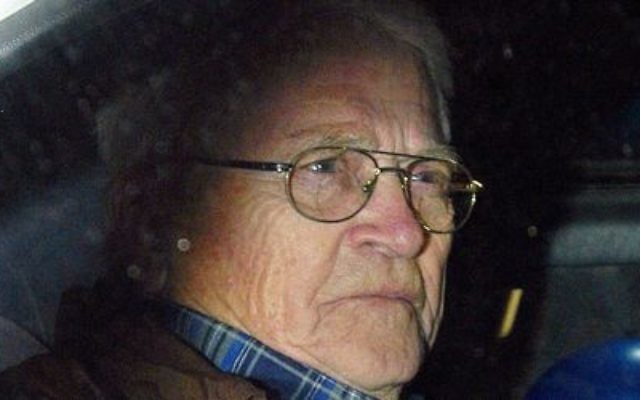Court rejects Zentai extradition
THE near seven year legal battle to see Perth man Charles (Karoly) Zentai extradited to Hungary for his alleged role in the murder of a Jewish man in wartime Budapest has suffered another blow, with the High Court rejecting an appeal from the Commonwealth on Wednesday.
THE near seven year legal battle to see Perth man Charles (Karoly) Zentai extradited to Hungary for his alleged role in the murder of a Jewish man in wartime Budapest has suffered another blow, with the High Court rejecting an appeal from the Commonwealth on Wednesday.
The government was appealing a Federal Court decision that found extraditing Zentai, 90, would be unlawful and while it reserves the right to launch another appeal, the High Court’s ruling will likely be the final word.
In a release posted on its website, the High Court explained that the extradition request from Hungary had been made for the offence of war crimes, and that in 1944 no such offence existed. “On 23 March 2005, Hungary requested his extradition for the offence of ‘war crime’. At that time, in Hungary, there was no offence of ‘war crime’ but there was an offence of murder, however Hungary did not request Mr Zentai’s surrender for the crime of murder,” the statement read.
Zentai is accused of beating Peter Balazs, 18, to death at an army barracks in Budapest in November 1944 for not wearing a yellow star. The Jewish teenager’s body was subsequently dumped in the Danube River.
In 2005, Zentai was arrested by the Australian Federal Police after being pinpointed in Western Australia by Operation Last Chance, an initiative of the Israel-based Simon Wiesenthal Centre to locate alleged war criminals still at large.
After being ordered to return to Hungary by a magistrate in 2008, Zentai won an appeal against the decision in the Federal Court in 2010.
A spokesperson for the Minister for Home Affairs Jason Clare told The AJN that while Australia and Hungary were bound by an extradition treaty, the request from the latter made it impossible to prosecute.
“The effect of the High Court’s decision is that Mr Zentai will not be surrendered to Hungary,” the spokesperson said.
“The High Court’s decision provides certainty about the interpretation of a provision of Australia’s extradition treaty with Hungary. It does not alter extradition arrangements.”
Jeremy Jones of the Australia/Israel & Jewish Affairs Council responded to the ruling: “The decision that Charles Zentai cannot be extradited to Hungary to face judgement for alleged war crimes is extremely disappointing. It is now incumbent on Australian authorities to assess whether he can and should be charged under Australian legislation, which is designed to ensure that no person who participated in crimes against humanity can escape justice through immigration to Australia.”
Executive Council of Australian Jewry president Dr Danny Lamm expressed his disappointment with the decision.
“The High Court’s decision today means that Charles Zentai will not be extradited to Hungary. This is a sad day for the family of Peter Balazs and those who wish Zentai to face his accusers. Zentai himself initially said that he was anxious to return to Hungary to clear his name, but that line was quickly abandoned.”
ADAM KAMIEN
Accused killer Charles Zentai.


comments